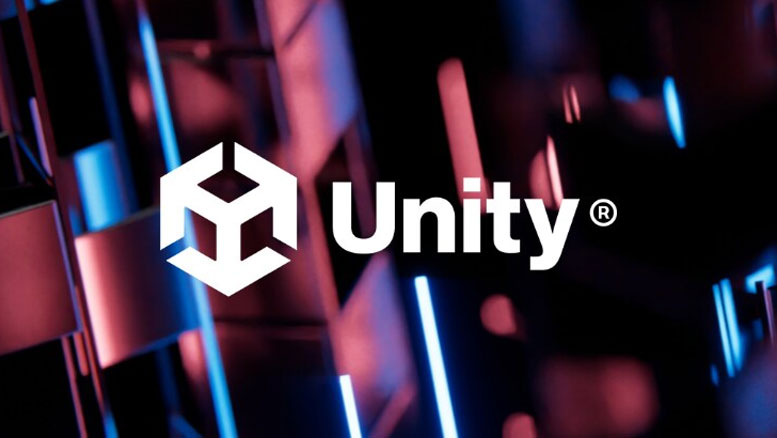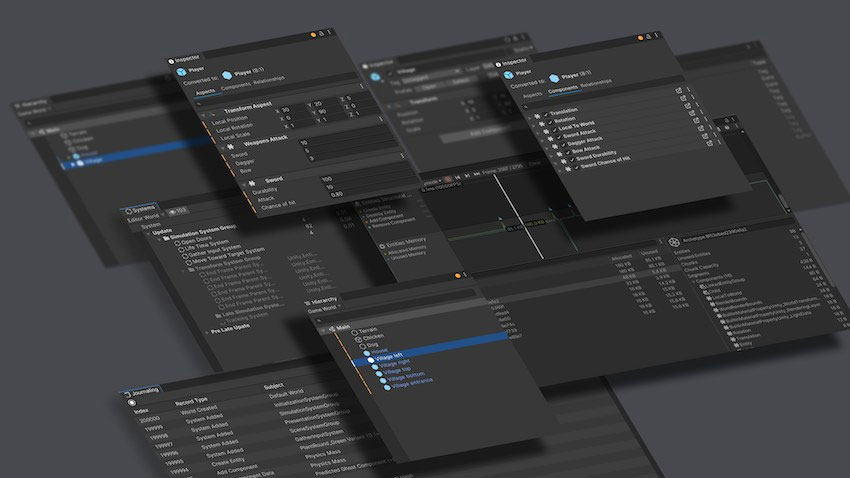Unity Issues Apology for New Runtime Fee Policy, Promises Changes
Company will reveal policy changes in “a couple of days.”

After a large backlash from games studios, video game developers, and gaming enthusiasts, Unity appears to be having a serious rethink regarding its recently announced runtime fee plans. The game engine firm’s official Twitter/X account begins with an appeal for calm among anguished parties, continues with an apology, and ends with the news that changes are afoot. Importantly, the runtime fee policy is going to be updated again, with details shared “in a couple of days.”
We have heard you. We apologize for the confusion and angst the runtime fee policy we announced on Tuesday caused. We are listening, talking to our team members, community, customers, and partners, and will be making changes to the policy. We will share an update in a couple of…September 17, 2023
Unity poked a wasps’ nest last Tuesday when it presented its new runtime fee policy to users of its popular video games development engine. As Unity is seemingly having some issues with profitability, the central idea in the new policy was to charge games publishers as much as $0.20 per game install. The fees policy was set to be enacted from January 1, 2024.
Today we are seeing the first signs of a Unity U-turn on the despised new runtime fee policy. It remains to be seen how big a change is coming. It is promising that Unity says “We are listening, talking to our team members, community, customers, and partners, and will be making changes to the policy.” Nevertheless, we could just be reading some soothing marketing doublespeak – the proof of substance behind a sincere apology will arrive in the coming days.

New fees are never going to be popular, but Unity’s intention to charge every time a customer’s game was installed by an end-user precipitated vocal fury, and even death threats. Concerns weren’t just about the new fees, but on how the policy was implemented out of the blue, causing developers big and small to withdraw their trust from the platform.
There were also concerns about how the new install fee would be triggered by Unity. Questions swirled regarding fees arising from re-installs on new / different devices, pirated copy installs, game stream services, and more.
Some of the most outspoken critics of the new runtime fee policy included: the studios behind Among Us, Games Awards host Geoff Keighley, and the creator of Garry's Mod. Moreover, several previous Unity devotees threatened to delay or abandon current Unity projects, and / or to change to a different games engine like Epic’s Unreal Engine.
Unity tried to take the heat out of the debate last Thursday, when it stressed that most users wouldn’t be affected by the new runtime fee policy. It asserted that install fees would not be levied on charity games, most demos, and would only start to kick-in on the most successful games with 200,000+ installs and $200,000 in lifetime revenue. Only 10% of Unity engine users would see any of the new fees, it stated.
Get Tom's Hardware's best news and in-depth reviews, straight to your inbox.

Mark Tyson is a news editor at Tom's Hardware. He enjoys covering the full breadth of PC tech; from business and semiconductor design to products approaching the edge of reason.
-
Giroro They didn't apologize for the pricing structure, they apologized for "The confusion". I guess they're blaming their customers for simply not understanding why they should pay the engine developer "infinite money forever" to let people install the games that they buy.Reply
To me, it doesn't sound like Unity actually has any intention to pivot back to a logical and sane pricing structure. They just want to punish devs who are big enough to make money, but too small to survive a change in course. They've made it clear that, one way or another, they're going to try unfairly squeezing those customers for as much cash as possible.
If Unity is somehow struggling to make money, then maybe they should be looking at improving their brand image beyond "The asset-flip store new/solo/and genuinely awful devs use to throw together unplayable horror games that nobody buys and streamers make fun of. It makes one wonder, "how good can the engine really be when it seems like over half the devs using it can't figure out how to implement basic walking mechanics?"
So we'll see how this works out for Unity when a bunch of their biggest/real customers just jump off and start releasing their competing engines over the next couple years. -
colossusrage Pretty sure there was no confusion. The policy was terrible and fairly straight forward. If there was any confusion it was all the walking back done in the past 48 hours.Reply -
hotaru251 Shame if they do eventually backtrack on fees...Reply
I was waiting for Nintendo to sue the ever living heck out of em as the ruby/sapphire remakes iirc used Unity.
This is Unity's poor excuse of damage control. -
JamesJones44 They should have simply said 4% of revenue over $200,000. It would still make them cheaper than the Unreal Engine while monetizing more from semi successful games on mobile (which is what they wanted). Instead they came up with some crazy scheme that sounded unrealistic to small devs/publishers.Reply -
AgentBirdnest Even if they walk back every single bit of it, Unity has showed their hand... or face... or something. I don't do idioms well.Reply
The point is, the moment it was announced, they could never be trusted again. If they return to the status quo of last week, developers won't forget about it, and will forever be wary of developing with Unity. Unity has become too big of a risk to develop games for.
I guess. I don't know <Mod Edit> about developing games. I'm just thinking out loud. Move along. : ) -
bit_user Reply
Yes, that jumped out at me, also.Giroro said:They didn't apologize for the pricing structure, they apologized for "The confusion". I guess they're blaming their customers for simply not understanding
Yes, but... developing & maintaining an engine is challenging & expensive, which is why few people roll their own. If Unity is losing money, then why is it so crazy that they would try to adopt a revenue model more similar to most of their customers?Giroro said:... why they should pay the engine developer "infinite money forever" to let people install the games that they buy.
Which is what? Maybe I missed it, but I think the article didn't say what their current fee structure is like. TBH, I was surprised they weren't already charging a royalty.Giroro said:To me, it doesn't sound like Unity actually has any intention to pivot back to a logical and sane pricing structure.
There are some open source ones, like O3D (formerly Amazon Lumberyard):Giroro said:So we'll see how this works out for Unity when a bunch of their biggest/real customers just jump off and start releasing their competing engines over the next couple years.
https://o3de.org/
Godot:
https://godotengine.org/
Open 3D Engine:
https://o3de.org/
And others, I'm sure. Here's a wikipedia listicle, but beware that most entries are probably out-of-date:
https://en.wikipedia.org/wiki/List_of_game_engines -
targetdrone $0.20 per install? What kind of DRM does unity games have that they can track who's installing it?Reply -
AgentBirdnest Reply
I've been wondering that same thing... what if I buy games from GOG or Itch, and install them on an offline computer? õ_Ôtargetdrone said:$0.20 per install? What kind of DRM does unity games have that they can track who's installing it? -
ien2222 Replybit_user said:...
Yes, but... developing & maintaining an engine is challenging & expensive, which is why few people roll their own. If Unity is losing money, then why is it so crazy that they would try to adopt a revenue model more similar to most of their customers?
Which is what? Maybe I missed it, but I think the article didn't say what their current fee structure is like. TBH, I was surprised they weren't already charging a royalty.
...
It actually isn't like other engine "royalties". Those are revenue based, this change in Unity is install based, and it's a rather significant difference. I believe UE5 is something like 5% over $1,00,000 in revenue, whereas this change is $.20 per install.
So, a dev gets a deal from Xbox for letting them put it in a free to play weekend for say $200,000. Not bad for a solo dev. Under UE5, if that dev still hasn't reached $1M they don't have to pay anything. Under Unity's new structure, if that game was downloaded 20mil times during that weekend...that's $4M that person would now owe Unity (or $4M minus any threshold that needs to be met...haven't taken a good look at it TBH).
It's a poopshow to be sure.
Here's a more in depth analysis by a dev that does gaming news from a few days ago:
Bellular News: Unity Are In EXTREME Trouble -
tamalero Reply
Empty promises as usual.Admin said:Unity’s new runtime fee policy is widely hated. It failed to soothe users with an explainer last week, so a more drastic change is coming – perhaps even a U-turn.
Unity Issues Apology for New Runtime Fee Policy, Promises Changes : Read more
No surprise that the top leadership sold a ton of shares related to the backslash.